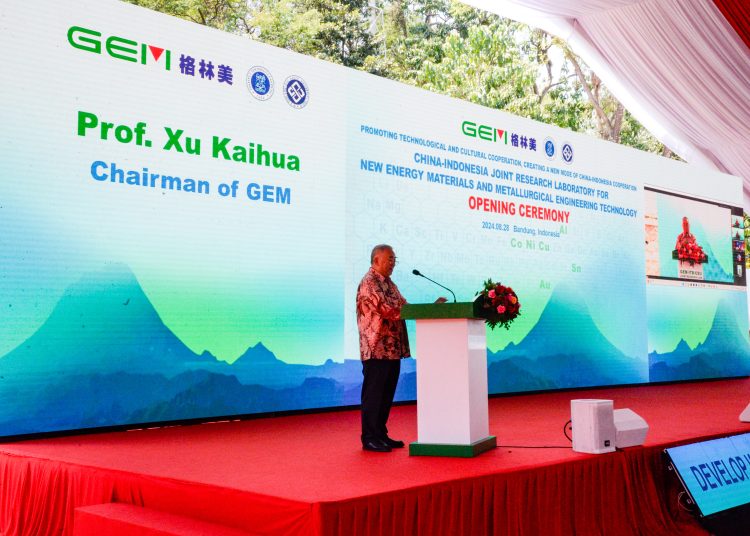China- Indonesia Joint Research Lab in Bandung Begins Operations
BANDUNG, RAKYAT NEWS – A new international joint research laboratory between Indonesia and China focused on New Energy Materials and Metallurgical Engineering Technology is ready to begin operations in Bandung, West Java.
The laboratory is a result of collaboration between the Bandung Institute of Technology (ITB), GEM, and Central South University (CSU).
According to an official statement received on Friday, the facility will house two experimental engineering research centers (the Hydrometallurgy Technology Research Center and the New Energy Materials Engineering Technology Research Center) along with 12 research laboratories. The total investment for this project amounts to 30 million USD, equivalent to approximately IDR 464.1 billion.
“With this joint laboratory, the Bandung Institute of Technology will become a center of excellence in education, research and development, as well as innovation in the fields of circular economy and sustainable development. It will also serve as a center of excellence for West Java Province and Indonesia as a whole,” said ITB Rector Reini Wirahadikusumah.
The laboratory is equipped with over 300 sets of the latest generation equipment, making it a world-class facility for testing and research in metallurgy technology and new energy materials.
Coordinating Minister for Maritime Affairs and Investment, Luhut Binsar Pandjaitan, who also serves as Chair of Indonesia-China Cooperation, emphasized that the establishment of this facility is crucial for strengthening the industrial talent cooperation between Indonesia and China, which is essential for improving human resource quality and innovative research.
“This joint laboratory comes at the right time and represents an important step in realizing discussions between the Indonesian and Chinese governments to enhance industrial talent cooperation. This will be vital for producing high-level master’s and doctoral graduates,” said Luhut.
The laboratory is expected to contribute to creating new leaders in Indonesia who are committed to research and innovation, as well as to societal welfare through job creation.
Aligned with the spirit of Bandung’s “Unity, Friendship, and Cooperation” and the principles of the Belt and Road Initiative, this joint laboratory aims to be a flagship project for technology cooperation and cultural exchange between China and Indonesia.
It is also anticipated to lead the way for the Belt and Road 2.0 model and contribute to a brighter future for the global community through the international expansion of Chinese companies. (Uki Ruknuddin)


Tinggalkan Balasan Batalkan balasan